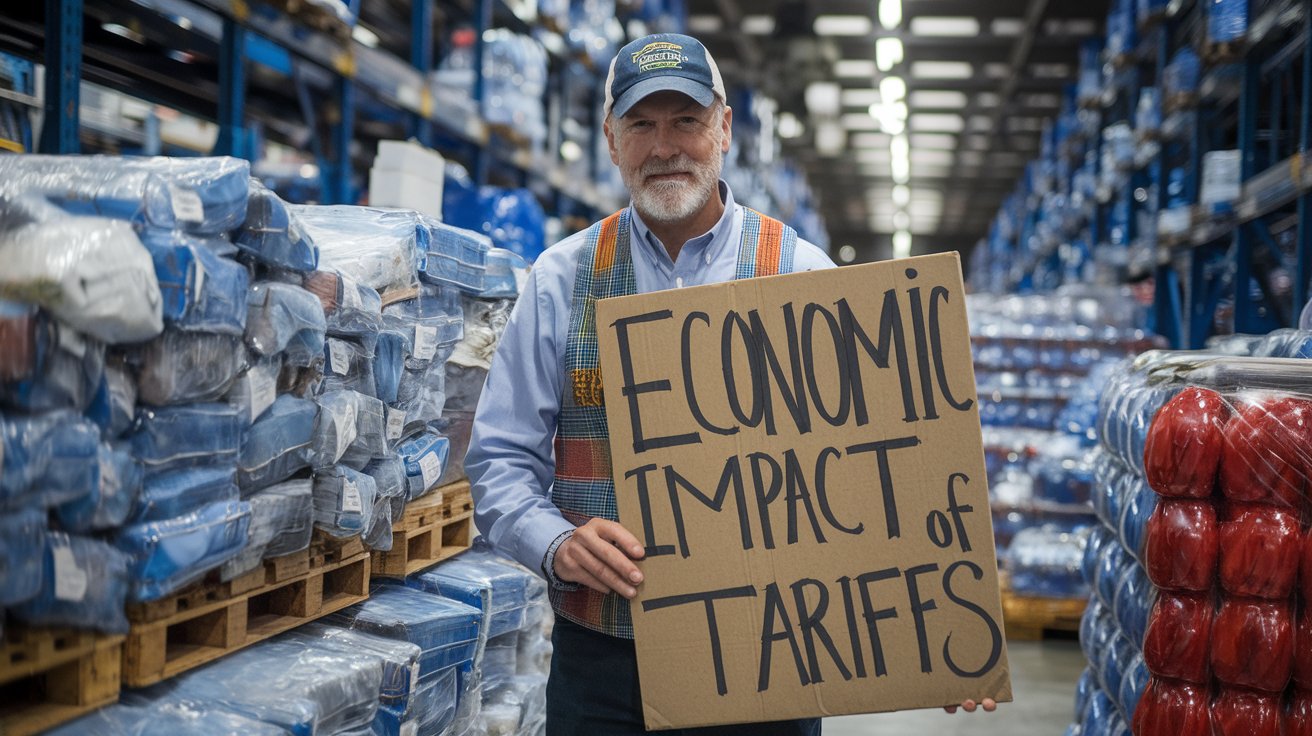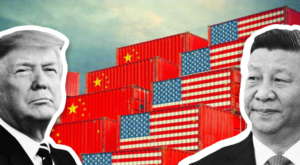President Donald Trump’s recent tariff threats are poised to reshape the global economic landscape, with significant implications for U.S. tax revenue and the broader economy. Trump’s Tariff Threat Looms: How It’s Already Crushing Tax Revenue! The administration’s aggressive trade policy, targeting sectors such as automobiles, pharmaceuticals, and semiconductors, aims to address the U.S. trade deficit through reciprocal tariffs. However, these tariffs may have unintended consequences that could stifle business growth, discourage investment, and ultimately reduce tax revenue rather than increase it.
Understanding Trump’s Tariffs and Their Economic Impact
Tariffs are taxes imposed on imported goods, designed to encourage domestic production by making foreign products more expensive. While this policy may seem beneficial for U.S. industries, it often leads to higher consumer prices and potential economic slowdowns.
A historical example is the “chicken tax” of 1963, a 25% tariff on imported trucks that significantly increased consumer costs and reduced competition in the U.S. auto market. If similar tariffs are applied today, particularly in key industries such as technology and manufacturing, they could create economic bottlenecks, limiting imports and increasing operational costs for businesses.
Table: Impact of Tariffs on Economy & Tax Revenue
| Factor | Positive Impact | Negative Impact |
|---|---|---|
| Domestic Industry Growth | Encourages local production | Higher costs for manufacturers |
| Tax Revenue | Initially increases | Can decline due to reduced trade |
| Business Investment | Short-term boost for some industries | Long-term decline due to uncertainty |
| Consumer Prices | Protection for local industries | Increased costs for everyday goods |
| Employment | Potential for job creation | Job losses in industries relying on imports |
Why Tariffs Can Reduce Tax Revenue Instead of Increasing It
While tariffs are meant to generate federal revenue, they often backfire. When import costs rise, businesses may cut jobs, delay expansions, or move operations to avoid high tariffs. This results in lower taxable corporate income and fewer tax collections. Additionally, retaliatory tariffs from other countries can decrease U.S. exports, reducing revenue from international trade.
A study by the U.S. Chamber of Commerce found that trade uncertainty can cause a 4% decline in business investments, which directly affects GDP growth and tax revenue.
The Long-Term Effects on American Consumers and Businesses
If tariffs increase, Americans may face higher prices on essential goods like electronics, cars, and groceries. When supply chains are disrupted, companies pass these costs on to consumers, leading to inflation and reduced purchasing power.
For businesses, tariffs create uncertainty that discourages investment. Many firms rely on global supply chains and exports to stay profitable. Increased production costs may force companies to relocate manufacturing or reduce their workforce.
Mind Map: How Tariffs Affect U.S. Households and Businesses
[ Tariffs ]
|
--------------------------
| |
[ Businesses ] [ Consumers ]
| |
Higher Costs Higher Prices
| |
Less Hiring Reduced Spending
| |
Lower Tax Revenue Economic SlowdownConclusion: The Real Cost of Tariffs
Trump’s tariff strategy aims to boost domestic production and increase tax revenue, but its unintended consequences could have a lasting negative impact. History has shown that tariffs often lead to economic slowdowns, increased consumer costs, and reduced tax revenue rather than growth. If these policies are not carefully implemented, they could deepen the budget deficit and weaken economic stability in the long run.
Key Data:
- The U.S. Chamber of Commerce estimates that trade uncertainty can lower business investments by 4%.
- Historical tariffs, such as the chicken tax of 1963, led to increased consumer costs and limited competition.
- Increased tariffs can force companies to outsource jobs, leading to lower tax revenue.





